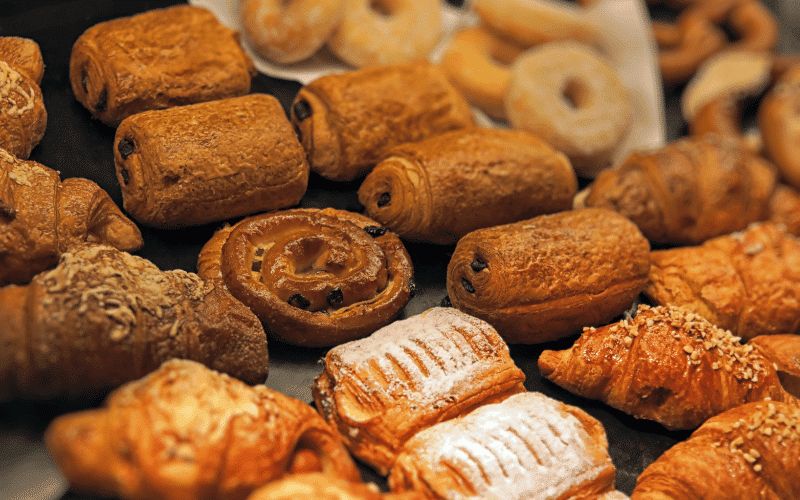Food 16: Sugary Cereals and Pastries

In our fast-paced society, quick breakfast options like sugary cereals and pastries have become a staple. Convenient as they may be, these foods are often packed with high levels of refined sugars, posing a significant risk to individuals with afib.
A diet high in added sugars contributes to weight gain and obesity, a significant risk factor for afib. Obesity puts additional strain on the heart, forcing it to work harder to pump blood. This added stress can lead to structural changes in the heart’s muscle tissue, increasing the likelihood of atrial fibrillation.
Furthermore, sugary cereals and pastries often lack dietary fiber, a nutrient key to maintaining a healthy weight. Without fiber to slow digestion, these foods can lead to a rapid spike in blood sugar levels. In response, the body releases insulin, which can cause a sudden increase in heart rate and blood pressure. These sudden changes in heart function can potentially trigger an afib episode.
In addition to these immediate risks, consistent high blood sugar levels can lead to the development of type 2 diabetes, a condition often seen in conjunction with afib. High blood sugar can cause damage to the heart’s blood vessels and nerves that control your heart and blood vessels, increasing the likelihood of an afib episode.
Choosing breakfast foods that are lower in sugar and higher in fiber can have a positive impact on afib management. Whole grain cereals, oats, and whole grain bread are excellent alternatives. Pair these with fruits, nuts, or seeds for added fiber and protein, which will help to stabilize blood sugar levels throughout the morning.